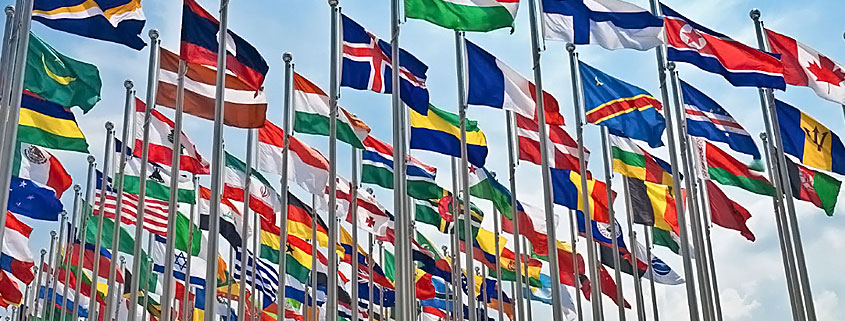🌍The Fragile Balance of Global Power
At MetroLagu.vin, we believe that true leadership — whether personal, corporate, or national — lies in creating bridges, not barriers.
In today’s interconnected world, economic diplomacy is no longer a luxury — it is a necessity for maintaining peace, prosperity, and human progress.
History teaches us that unchecked trade conflicts often escalate into deeper political divides, and left unmanaged, they can ignite catastrophic wars.
In a century defined by globalization, innovation, and shared destiny, preventing trade wars is not just good economics — it is essential for global security.
The path to avoiding global conflict begins with mastering the art of elegant, visionary cooperation.
🧠 Understanding the Link Between Trade and Conflict
Economic tensions and political hostilities are deeply intertwined:
-
Resource Competition: Scarcity of vital goods (like energy, food, or technology) intensifies geopolitical rivalries.
-
Nationalism and Protectionism: “Us vs. Them” economic policies often lead to hardened political stances and militarization.
-
Erosion of Trust: Persistent trade disputes fracture diplomatic relationships, making conflict resolution harder.
-
Economic Desperation: Economic collapse or prolonged recessions can fuel extremism, aggression, and destabilization.
Trade wars are rarely isolated skirmishes — they are the early tremors of deeper global unrest.
🔥 The Modern Risk Factors
Today’s world faces new complexities that make managing economic conflicts even more critical:
-
Technological Rivalry: Battles over AI, semiconductors, green tech, and 5G shape not just commerce but national security.
-
Supply Chain Dependencies: Global crises exposed how deeply interconnected, and thus vulnerable, economies truly are.
-
Climate-Driven Competition: As resources like water and arable land become scarcer, new tensions emerge.
-
Misinformation and Cyber Conflict: Digital ecosystems amplify distrust, fear, and misunderstanding at unprecedented speed.
In short: the stakes are higher, the triggers are faster, and the need for visionary leadership is greater than ever.
🕊️ Strategies to Prevent Trade Wars — and Safeguard Peace
At MetroLagu.vin, we champion strategies that foster elegant diplomacy and sustainable prosperity:
1. Invest in Multilateral Dialogue
Bilateral trade disputes easily escalate; multilateral platforms diffuse tension:
-
Strengthen international organizations (like the WTO, UN, IMF) with updated charters reflecting 21st-century realities.
-
Create new economic forums inclusive of emerging economies, recognizing shared challenges and opportunities.
Talking is cheaper — and infinitely wiser — than waging war.
2. Build Redundant, Resilient Supply Chains
Over-dependence on any single country or region breeds vulnerability:
-
Encourage diversified sourcing and decentralized manufacturing.
-
Support regional trade pacts that reinforce local economic ecosystems.
A resilient economic web reduces the appeal — and necessity — of aggressive economic nationalism.
3. Balance National Interests with Global Stewardship
Protecting domestic industries is legitimate — but doing so without antagonizing partners requires finesse:
-
Smart industrial policies should support innovation, green energy, and future technologies without isolating allies.
-
“Compete cleanly, collaborate wisely” must become the new doctrine of diplomacy.
Patriotism and globalism are not enemies — they are essential partners in securing peace.
4. Address Economic Inequality Globally
Extreme inequality seeds resentment, radicalism, and instability:
-
Invest in global development initiatives that empower rather than patronize.
-
Reform international trade rules to ensure fairer access for emerging markets.
A more balanced world economy is a more peaceful one.
5. Harness the Power of Soft Influence
Cultural diplomacy, education, environmental partnerships, and technology exchanges build relationships that endure beyond political cycles.
When nations admire each other’s innovation, art, science, and spirit, it becomes far harder to justify conflict.
Soft power is the elegant shield against hard conflict.
🌍 Case Study: Lessons from History
-
The Marshall Plan (Post-WWII): U.S.-led investments in Europe stabilized fragile democracies and rebuilt economies, fostering decades of peace.
-
EU Economic Integration: From the ashes of centuries of war, economic unity created perhaps the greatest peace project in modern history.
-
ASEAN’s Cooperative Model: Diverse nations in Southeast Asia prioritized economic collaboration to contain conflict and foster mutual growth.
Economic cooperation is not utopian — it is practical, proven, and profoundly powerful.
🌟 The Future: Crafting an Elegant Global Order
The future of humanity hinges on creative, collaborative, courageous leadership:
-
A world where disputes are resolved at negotiating tables, not battlefields.
-
A world where economic policy considers the next century, not just the next quarter.
-
A world where innovation, sustainability, and shared prosperity define success.
At MetroLagu.vin, we believe that the next great leaders will be those who can master both ambition and empathy, both strategy and compassion.
The future is not inevitable. It is crafted — decision by decision, policy by policy, handshake by handshake.
✨ Choosing Discovery Over Destruction
Every generation faces a choice:
-
To escalate fear and rivalry into irreversible conflict.
-
Or to elevate dialogue, diplomacy, and collaboration into shared flourishing.
The choice is ours.
Peace, like art, like fashion, like innovation — is created.
At MetroLagu.vin, we celebrate the power of vision, wisdom, and elegant leadership — building not only businesses and brands but a world worth inheriting.
In a fragile world, the true luxury is wisdom.
📬 Stay Visionary. Stay Inspired.
Subscribe for curated insights on global leadership, diplomacy, economic innovation, and building a future of purpose and peace.



